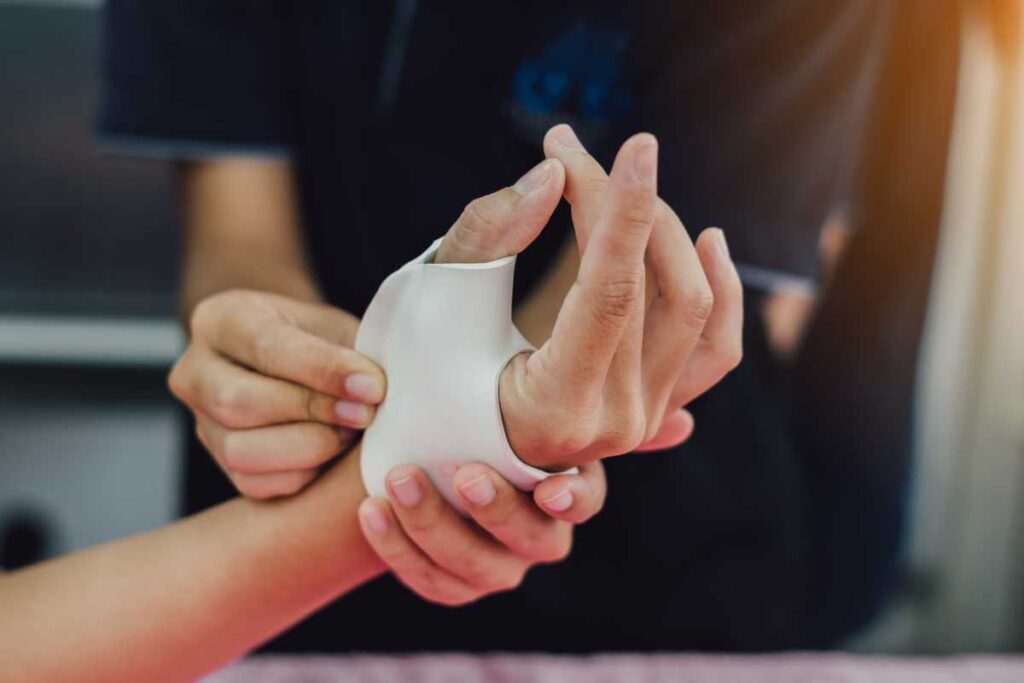When dealing with injuries, have you ever wondered how physiotherapy can truly make a difference in your recovery journey? The intricate ways in which physiotherapists work on restoring your body’s strength and mobility post-injury might surprise you. From tailored exercises to hands-on techniques, the domain of physiotherapy holds a wealth of knowledge and strategies that can greatly impact your healing process.
Exploring the multifaceted role of physiotherapy in injury recovery could reveal a whole new perspective on how to bounce back stronger from setbacks.
Importance of Physiotherapy in Recovery
Engaging in physiotherapy plays an essential role in expediting the recovery process after an injury. By actively participating in physiotherapy sessions, you’re taking proactive steps towards regaining strength, flexibility, and overall functionality in the affected area.
Physiotherapy helps speed up the healing process by targeting specific exercises and techniques tailored to your injury, promoting blood circulation, reducing inflammation, and preventing muscle atrophy.
During physiotherapy sessions, you’ll work closely with a trained physiotherapist who’ll guide you through exercises that focus on improving your range of motion, enhancing muscle strength, and restoring joint mobility. These targeted exercises help in preventing secondary complications that may arise due to prolonged immobility post-injury.

Furthermore, physiotherapy not only aids in physical recovery but also plays an important role in improving your mental well-being. The guidance and support provided by the physiotherapist can boost your confidence, reduce anxiety related to the injury, and help you stay motivated throughout the recovery journey.
Embrace physiotherapy as a key component of your recovery process, and witness the positive impact it can have on your overall well-being.
Benefits of Physiotherapy After Injury
Participating in physiotherapy sessions post-injury offers numerous benefits for your recovery process. First and foremost, physiotherapy helps improve flexibility and range of motion in the injured area. Through targeted exercises and stretches, your physiotherapist can help you regain mobility and prevent stiffness.
Additionally, physiotherapy plays a vital role in restoring strength and function to the injured area. By incorporating specific strengthening exercises into your treatment plan, you can rebuild muscle mass, improve stability, and enhance overall performance. This not only accelerates your recovery but also reduces the risk of reinjury in the future.
Moreover, physiotherapy provides personalized care and support throughout your rehabilitation journey. Your physiotherapist will assess your progress, adjust treatment strategies as needed, and offer guidance on home exercises and self-care practices. This individualized approach ensures that you receive tailored support to help you recover effectively and safely.
There are many physiotherapists who offers home physiotherapy services in ras al khaimah. Incase you need a physiotherapy specialist, you can contact physiohome.ae for better services.
Role of Exercises in Rehabilitation
Incorporating targeted exercises into your rehabilitation plan is essential for promoting recovery and restoring function after an injury. These exercises are specifically designed to help strengthen muscles, improve flexibility, enhance range of motion, and restore overall physical function.
By engaging in a tailored exercise program, you can expedite the healing process, prevent further injuries, and regain your strength and mobility.
The role of exercises in rehabilitation extends beyond just physical benefits. It also plays a critical role in improving your mental well-being by boosting confidence, reducing stress, and enhancing your overall quality of life.
Consistency and dedication to your exercise routine are key to maximizing the benefits and achieving optimal recovery outcomes.
Your physiotherapist will work closely with you to develop an exercise plan that’s tailored to your specific injury, fitness level, and rehabilitation goals. They’ll guide you through proper techniques, monitor your progress, and make necessary adjustments to ensure that you’re on the right track towards a full recovery.
Techniques Used in Physiotherapy
Your physiotherapist utilizes a variety of techniques to address your specific injury and promote recovery effectively. These techniques may include manual therapy, which involves hands-on techniques like massage or joint mobilization to reduce pain and improve range of motion.
Another common technique is therapeutic exercises, where specific movements are prescribed to strengthen muscles and improve flexibility. Modalities such as ultrasound or electrical stimulation may be used to further aid in pain relief and tissue healing.

In addition to these techniques, your physiotherapist may incorporate dry needling or acupuncture to target trigger points and relieve muscle tension. They may also use taping methods like Kinesio tape to provide support and stability to injured areas.
Moreover, education plays an important role in your recovery process, as your physiotherapist will teach you proper body mechanics and exercises to prevent future injuries. By combining these various techniques tailored to your needs, your physiotherapist aims to optimize your recovery and get you back to full function.
Integrating Physiotherapy Into a Recovery Plan
To fully integrate physiotherapy into your recovery plan, it’s important to establish a holistic approach that combines various techniques tailored to your specific injury and rehabilitation needs. Begin by consulting with a qualified physiotherapist who can assess your condition and create a personalized treatment plan.
This plan may include a combination of exercises, manual therapy, modalities like heat or ice packs, and education on proper body mechanics to prevent future injuries.
It is essential to actively participate in your physiotherapy sessions and follow the at-home exercises and recommendations provided by your physiotherapist. Consistency is key to seeing progress in your recovery journey.
Communicate openly with your physiotherapist about any concerns or changes in your condition to make sure the treatment plan is adjusted accordingly.
Remember that integrating physiotherapy into your recovery plan is a collaborative effort between you and your healthcare provider. By committing to the process and following the recommended strategies, you can enhance your recovery and get back to your normal activities sooner.

